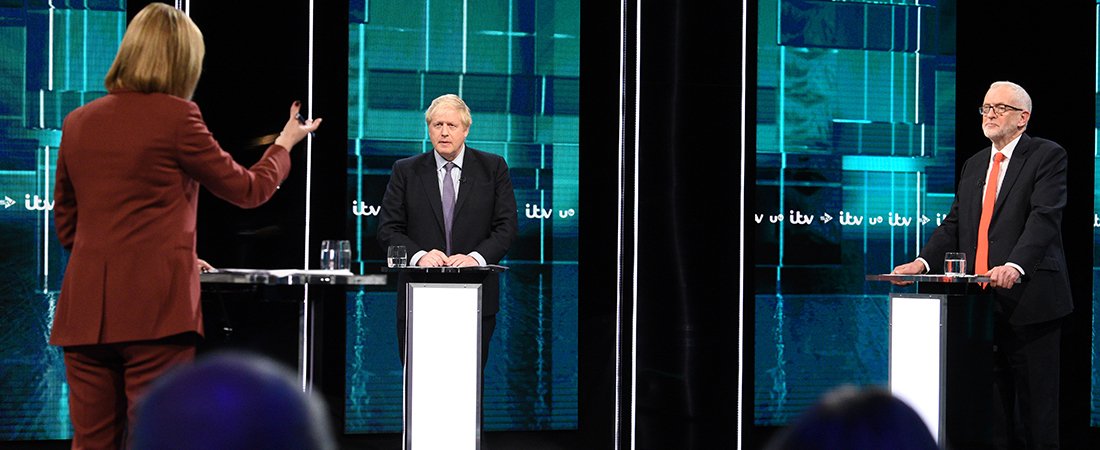This format for General Election debates in the UK has now become established. A stage set like a game show. Contenders behind their starting block. The moderator like a conductor in the middle. Every contribution has a strict time limit. There is no opportunity to develop argument or have a real debate. But this is the only format that can work under Julie Etchingham’s fingertip control – or the candidates will talk until they are carried out.
It was a Brexit debate. That’s what Boris Johnson wanted and indeed what he got. Even in the second half, when it moved onto domestic matters, he brought every message back to Brexit. This was a script from the Vote Leave campaign. Just as they repeated “take back control” every other second three years ago, now the catch phrase is “get Brexit done”. This is hugely appealing to Leave voters (and perhaps some Remain voters who just want the whole business over with). But for many of us, it is tempting to switch off the TV.
The magic of the Leave campaign was to put out a deliberate falsehood around the so-called £350m a week we save from EU membership – and instead give this to the NHS. All voters heard was that we send money to the EU which could go to the NHS. Labour have adopted that strategy with their constant refrain that the Conservatives will “privatise” the NHS. Not true, but every time it is repeated something worrying lands with voters.
But – given that we are talking about truth – the turning point in the debate was the question from Fahad Sayood. Even watching at home you could feel the mood in the studio change. Here was an opportunity for either man to seize upon a real concern that the public have: that they are being conned. Sadly, neither of them took it. That was the point where one of them could have won the night. Instead, they both took refuge in their preferred slogans.
Both men got their key messages out. Both held their own. But the viewers – the voters – have not gained much. A brief truce in the middle of the show to shake hands and “play nicely” was wholly unconvincing. The Conservative Party’s childish error to rebrand their Twitter feed as a fact checker was a stunt even Malcolm Tucker would have laughed off. And yet in an election where both candidates for PM do the minimum of free-form interviews we do need to have these events. We get a glimpse at least of each man who seeks to be our PM. As Fahad asked – and it’s the question we are all pondering – are they telling the truth?
Those wanting to understand the real priorities of the party leaders– and the policy compromises that they will have to make after the election – will need to analyse beyond the soundbites. How are we going to pay for our public services given ever-increasing demand? How are we going to successfully grapple with the challenges of automation? How are we going to decarbonise our economy? And what industries should our future trade deal with the EU prioritise if Brexit goes ahead? We didn’t hear much on these questions this week. But these are some of the long-term challenges facing the United Kingdom. They will come into sharper focus on the morning of 13th December, whoever walks through the door of No. 10.

